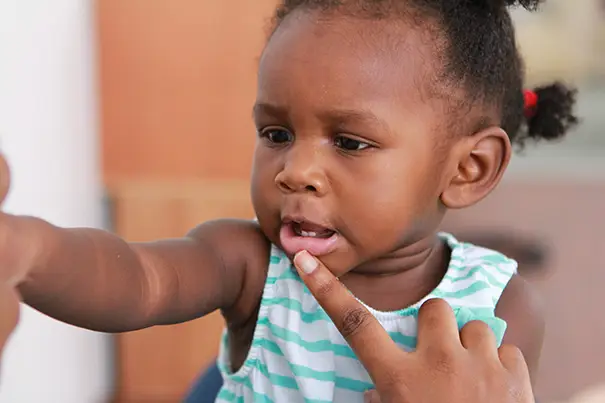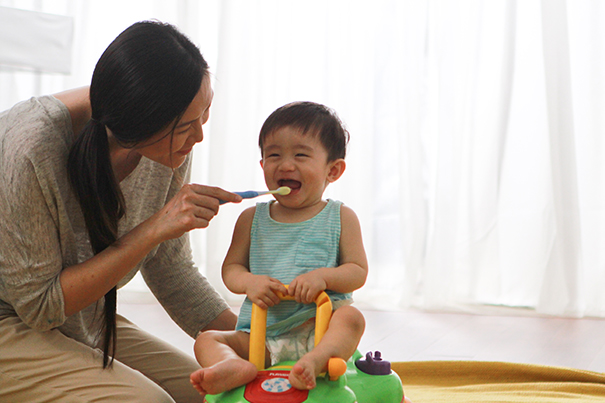
Guide to Taking Your Baby to the Dentist
Dental health is vital for your child's overall health and appearance, and early, regular checkups are a keystone of good oral care. Here’s everything you need to know about those first few visits to the dentist, and how to make each dental checkup as worry-free as possible for both you and your child.
When Should You Take Your Baby to the Dentist?
Schedule the first dental appointment within a few months of those first baby teeth coming through, or around your child’s first birthday, whichever comes first. Typically, a baby’s first teeth start to appear at around 4 to 7 months, however, don’t be alarmed if they appear after your baby turns 1.
How Often Should a Child Go to the Dentist?
Take your child to the dentist for a general checkup twice a year. The dentist will check the health of the teeth and gums, clean the teeth, and make sure everything is developing well. Luckily, dentists now know so much about keeping fear and pain out of dental care that children should really have no reason to worry when it’s time for one of these visits.
Of course, sometimes a visit to the dentist may not be quite as simple as a cleaning if a tooth is knocked out, chipped, or cracked, for example. If a permanent tooth is knocked out, then getting to the dentist right away could save it. Other times, like in the case of a chipped tooth, the dentist visit can wait until the next day.
If you notice that one of your child’s teeth is decayed or if your child has a toothache (possibly due to a cavity), make a dental appointment soon instead of waiting for the next bi-annual checkup.
Read more about tooth injuries for information on what to do if your child’s tooth is knocked out or if you think a tooth might be decaying.
Tips to Make the Dentist Visit a Little Easier
There are a few things you can do to be sure your child gets the right care and develops an attitude that will ensure his smile stays bright for a lifetime:
What Does the Dentist Do?
Although each dentist will do things a little differently, here’s a quick rundown on what to expect:
Why Regular Dental Checkups Are Important
Even though baby teeth eventually fall out, their health is crucial to your child’s oral health and overall well-being. Taking care of those baby teeth helps to ensure healthy gums and proper development of the adult (permanent) teeth. Your pediatric dentist can check the health of your baby’s gums and teeth and make recommendations, if necessary. The dentist will also know about local fluoride levels in the water, and will be able to advise about fluoride varnishes or supplements, if they’re required.
Visiting the dentist early and often also means your child can feel more comfortable about these checkups, setting up a good routine of regular dental care that will continue into adulthood.
How to Take Care of Your Baby’s Teeth at Home
There’s a lot you can do to care for your baby’s teeth and gums at home. For starters, you'll want to brush your baby’s teeth and gums twice a day, avoid giving your child sugary drinks and sweets, and eventually teach him how to brush his own teeth. For more information about these steps and more, read these FAQs about home dental care for children.
Read more about Baby
Join a World of Support
through Pregnancy and Parenthood.
TRACK WITH TOOLS
LEARN WITH EXPERTS
GET REWARDED






